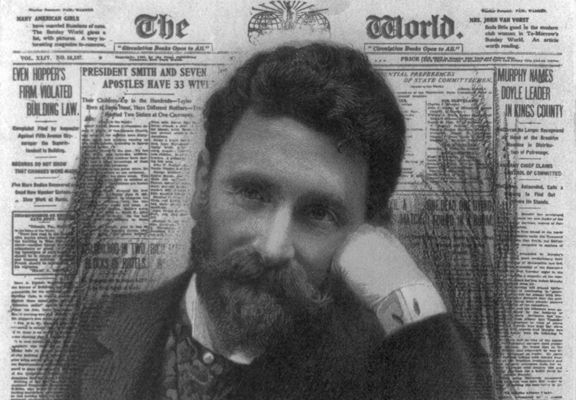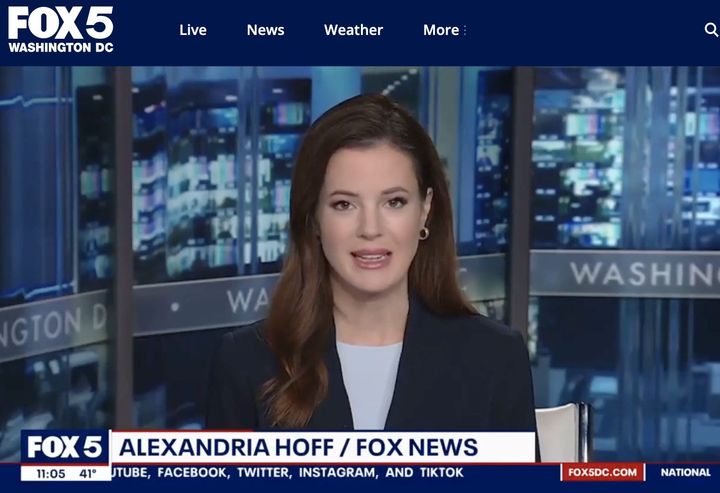Twitter is being used by a billionaire to shift public opinion. Time to go elsewhere
When your opponent controls the playing field, you will always lose that fight. Let's democratize our media.

“Nothing in the world is less surprising and easier to understand than a right-wing billionaire purchasing a media entity and immediately trying to use it to pursue his ideological agenda and class interests." - Chris Hayes, talking about Twitter and Elon Musk.
What is happening at Twitter?
It now seems clear Elon Musk is changing Twitter to amplify rightwing voices.
He’s fired a large number of employees. He gave remaining employees an ultimatum: if they were “hardcore” enough, they could click a button to stay — and otherwise they’d be laid off. That kind of ultimatum will tend to retain the people that are loyal to Musk himself and aligned with him ideologically, and will tend to get employees who oppose Musk’s agenda to leave. Recently he’s announced that Twitter is hiring again, and he wants referrals from those remaining, more Musk-loyal, more rightwing employees.
Musk has let a number of far-right accounts back on the platform, and reports are that the activity of rightwing trolls on the platform are up.
And back in the spring, when Musk was working on this Twitter deal, Musk got some texts (disclosed as part of a lawsuit) from an unidentified person that might explain what is happening now. That person said “Congratulations! …some of the things that [you] might [make] happen [at Twitter]: Step 1: Blame the platform. Step 2: Coordinated pressure campaign. Step 3: Exodus of the Bluechecks [the verified, trusted accounts]. Step 4: Deplatforming [of liberals]".
The texts continue:
“But it will not be easy. It will be a war. Let the battle begin. It will be a delicate game of letting right wingers back on Twitter, especially the boss himself [Trump]. I would have someone savvy … a Blake Masters [“Nazi-adjacent”] … to be the VP of actual enforcement.”
It’s clear that whoever is writing Musk in these texts, be it Peter Thiel or someone else, is advising Musk on how to use his purchase of Twitter to advance rightwing interests.
And advancing rightwing interests helps Musk’s class interests, because modern rightwing politics is about using media and identity and culture war issues to benefit billionaires. Culture war and wedge issues and far-right ideology gets votes for policies that enrich billionaires.
Billionaires, modern media, and rightwing ideology
It is a problem of our time that billionaires have learned how to use modern media to influence public opinion — and by changing public opinion, they can corrupt democracies from the inside. Rupert and Lachlan Murdoch are the highest-profile example of pushing America to the right, to favor pro-billionaire policy. They do that via Fox and the voices they air there, from Tucker Carlson and Laura Ingraham on down. But there are many other examples of billionaires using media outlets to advance a rightwing agena. Paul Singer supports the Washington Free Beacon, Phil Anschutz the Washington Examiner, Dick Uihlein the Federalist, Dan and Farris Wilks support Prager U. The Murdochs have reportedly lost money for decades on the New York Post, and Bob and Rebekah Mercer supported Breitbart because that helped their rightwing, pro-billionaire agenda.
And billionaires are not just creating new outlets. With the decline of American journalism, there is an insidious method now available for wealthy people to influence public debate: Buy a well-known media brand and turn it into a rightwing outlet. In that case, the news brand retains some trust with the public. But that trust can be exploited by injecting rightwing views to influence readers.
Newsweek is a recent example of this kind of "zombie publication". Newsweek still has some reputation as a mainstream news outlet, but its new owners put far-right MAGA writer Josh Hammer in charge of their opinion section. Hammer has ties to some of the most Trumpy institutions and donors in the country, including the Claremont Institute. Under Hammer, Newsweek’s opinion section shows a far-right, pro-billionaire bias.
Does this matter? Yes. The news people consume can absolutely influence their thinking. For example, two political scientists got a group of people who watched Fox to switch to CNN for a month, and found strong evidence that this switch changed their opinions on a variety of political issues.
Media changes minds. Perhaps that's the reason Musk bought Twitter.
The danger that comes from Twitter's zombiefication
The kind of zombiefication we saw with Newsweek is where we are headed with Twitter. It's headed down the drain. It's likely to eventually become Gab or Parler, a rightwing site, filled with rightwingers, manipulated by trolls, and something no regular person should read. But on the way to that state, many many average Twitter users are going to be misled and influenced.
The most engaged Twitter users (and if you’re reading this, you’re probably one of them!), who spend the most time on the site, have often kept a close watch on everything Musk and his funders are doing. Many journalists fit into this group. People highly engaged with politics and Twitter know what's happening, and can keep that context in mind to avoid influence by rightwing Twitter manipulation. But we can't expect that for everyone. People are busy and don't have time to keep up on every detail of corporate transactions and modern disinformation. As Twitter declines, many average people will still open it up every few days, and think that it still supports liberal debate and that blue checks still confer trust. And Musk will abuse that trust, exploit it, to push out rightwing opinion and influence people. And that will impact future elections.
Media changes minds. Perhaps that's the reason Musk bought Twitter.
Can we win? Shouldn't we just stay on Twitter?
Some Twitter users have been advocating to stay and fight, saying that leaving is a form of surrender — that leaving lets this billionaire win.
It’s true that we should fight. But we can't fight and win on the Twitter platform itself. It's time to start making exit plans.
James Slezak, the former executive director of digital strategy at the New York Times and now a founder of a tech startup, put it this way:
"As upsetting as it is, it’s now politically important that Twitter fails. Like with the Murdochs [at Fox, etc], and Kaplan/Thiel at Facebook [rightwingers with ties to Trump: senior VP of policy, and Facebook board member], it will be easy for Musk to succeed at boosting rightist agitprop and suppressing the left. That shifts the media diet for the normie 90% [of Twitter users]"
That’s right. Twitter is now a danger to American democracy. The only effective solution now is to move to new platforms. There are other social media platforms, and we can build them up to support honest debate and provide some replacements to Twitter.
Staying on Twitter today is like playing a soccer game when the ref is paid off against you, the field is tilted so you're always running uphill, and the goal you're defending is four times the size of your opponent's. You can't win in that circumstance, because the playing field is tilted.
Musk could block you or anyone he doesn’t like tomorrow. And further, he has control of the algorithms. He can boost rightwing voices and suppress pro-democracy voices. He can take your tweets and de-prioritize them so many fewer people see them. He's already said that he will do these things.
You can't win on Twitter. It's time to start transitioning away from it.
What do we do now? Migrate. But the long-term tools are democratic tools.
One of our critical communications platforms is now owned by a rightwing billionaire. And moreover, autocratic forces, including investors connected to the Qatari and Saudi Arabian states, helped Musk buy the platform.
A deeper, fundamental problem is that it's even possible for wealthy rightwing interests to purchase key communications channels in our democracy and distort them to their own ends.
How can we fight back? The first step we all can take is to migrate off of Twitter. Mastodon seems like a plausible replacement, and other services are being built and expanded right now. The migration won’t be seamless, but the early Twitter experience wasn't seamless either. These Twitter alternatives will improve and change with time. And the earlier we jump in to these alternatives, the more we will have a chance to shape them.
The Twitter alternatives will be something new, different than Twitter — some services will aim at promoting journalists or other significant figures, some at building communities for longer conversations. Twitter wasn't perfect either, as its focus on virality pushed everyone to say more controversial things to provoke emotional responses. Let's give the alternatives a shot and try to work on the best platform possible for sharing information to inform citizens.
However, the major lesson from the Musk corruption of Twitter is about how to fight to make a better media more generally. We should be using democratic tools, for democratic governance, to shape the kind of media we need. Government is the way we act together, the way we address societal problems in a democracy. What we need is to strengthen democratic institutions to reflect the will of the people as a counterweight against rightwing billionaires.
In the 1920s and 30s, as radio rose in prominence, democracies around the world built public media, and also media regulatory agencies (like the FCC in the US) to make sure that media worked well to keep citizens informed.
In many cases those public media and media regulatory bodies were built in part with the goal of limiting the influence of the rich and powerful over media. Democracies saw how mass media — like the new media of the time, radio — had played a role in the rise of fascism.
We're in a similar historical moment now. Modern media, from social media like Facebook, to mass media like Fox and the New York Post, have played a role in the rise of neofascism. Modern media has played a role in the rise of MAGA conservatism in the US, and in the rise of pro-billionaire changes abroad, from Italian neofascism to Brexit.
Democracies have many tools to build better media. First, funding journalism, especially local journalism, is one way to improve public debate.
Another way is to use competition law. In the US, much of our mass media is controlled by large diversified conglomerates who have their own interests that often intersect the interests of their wealthy investors or executives. We could enact laws to weaken the influence of investors and executives on media. France has required big streaming outlets like Netflix to invest 25% or more of their revenue in local or independent content to democratize who gets to create content. In the US, we could make efforts like this, and we could also empower our federal agencies, including the FCC and FTC, to push back against media consolidation. For example, CNN has been shifting to the right after the merger of its parent into Warner Brothers Discovery. A rightwing billionaire on the Warner board, John Malone, is pushing to have CNN favor the right wing and MAGA Republicans. Competition law could be added (for example, empowering the FTC or FCC) to limit this kind of consolidation, perhaps even blocking this merger or forcing CNN to be spun off. This would take Congressional action, but regulating competition is something our government can do. A more-independent CNN would be less subject to the whims of wealthy owners and executives.
Freedom of speech is a vital principle of American democracy, and it’s important to respect that freedom. But freedom of speech doesn’t mean freedom for any billionaire to own and co-opt Twitter, or CNN. We can use democratic processes to establish rules about media ownership that reduce the impact of money over speech.
Let’s join new communication platforms, and advocate for more-democratic media
We should all start the migration off Twitter now. Making a mastodon account seems like a great start. Let’s also tell the world why we are leaving. Deny Musk the legitimacy of the reputation Twitter had. Let's make sure average people know Twitter is now a rightwing outlet.
Let’s also join and build new communities at other places, like Mastodon. And we should use this chance to strengthen our ties to local community and political groups. Go to a local Indivisible meeting, or school board meeting. Join local groups advocating for action. Social media is a powerful tool for informing and educating, but used alone it can lead to “political hobbyism”, limiting your ability to create change. Organizing, and joining local groups, is a key part of political action, today as it has always been.
Let's all work together to build better democratic governance over media, and democratic governance over the key communications and information channels in our democracy.


